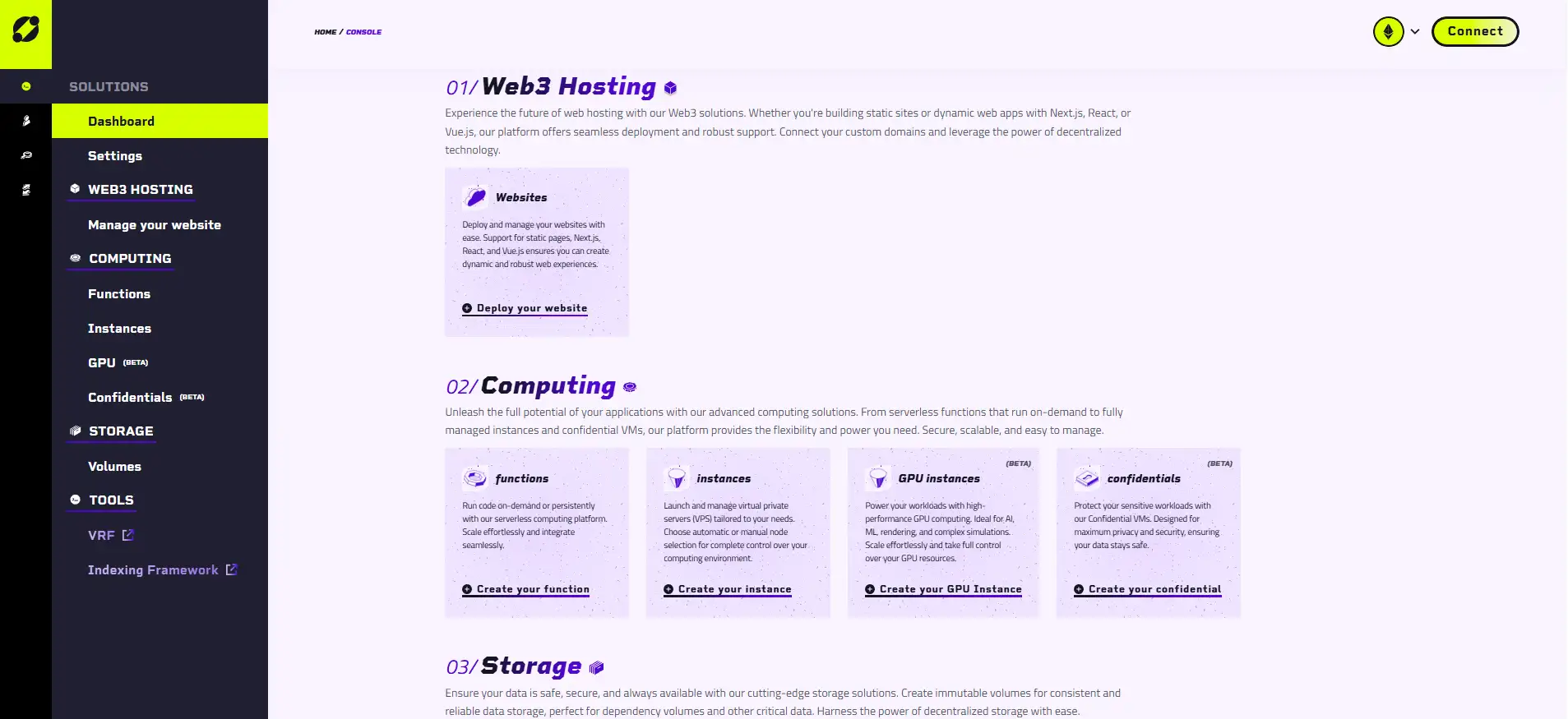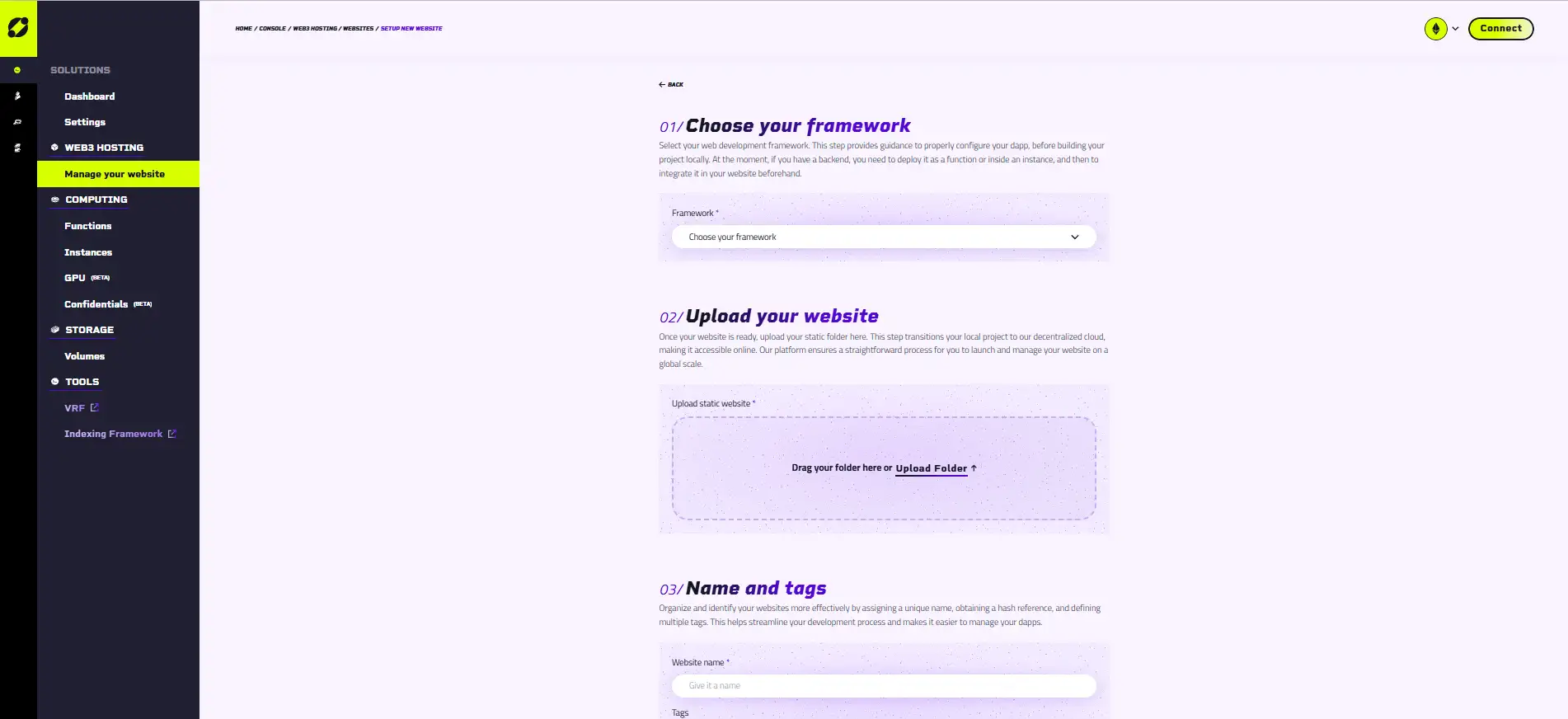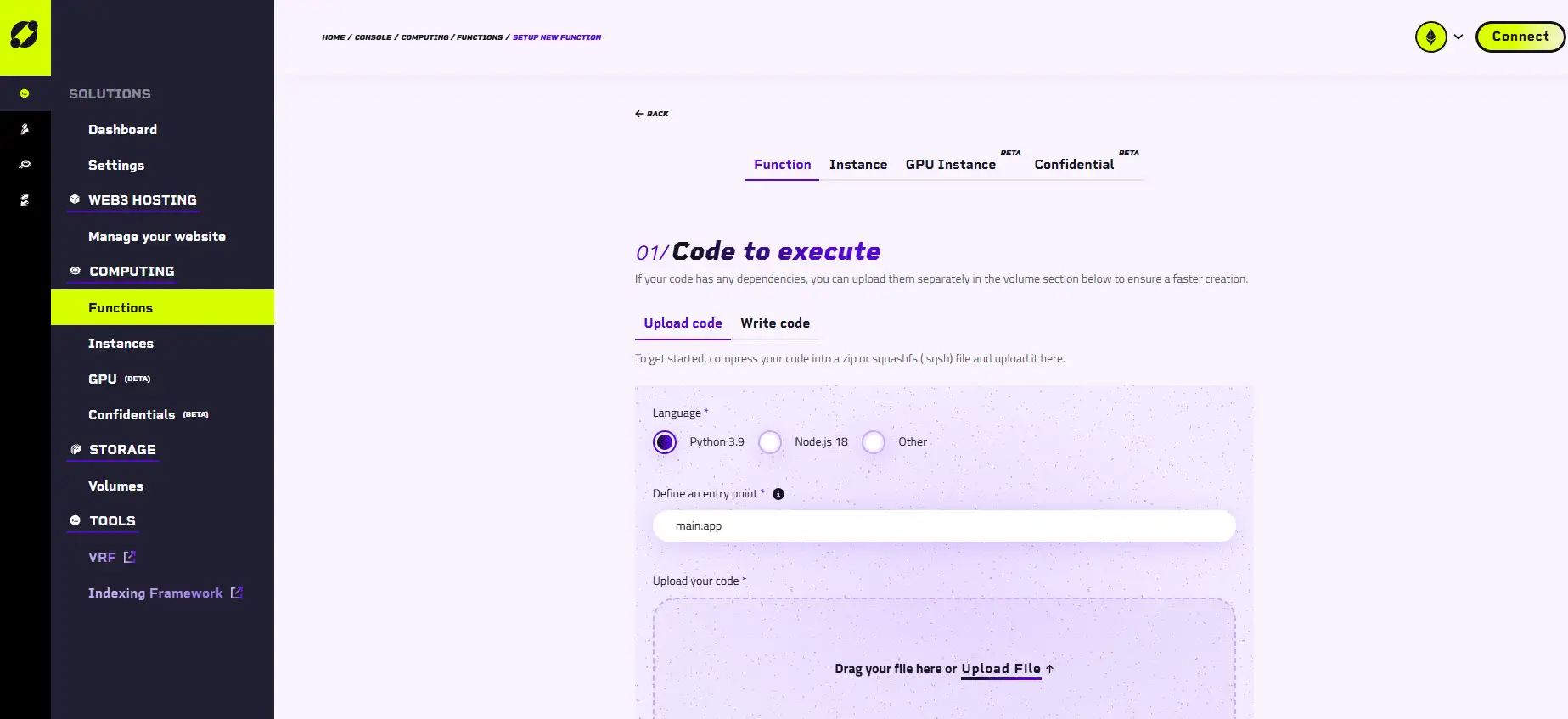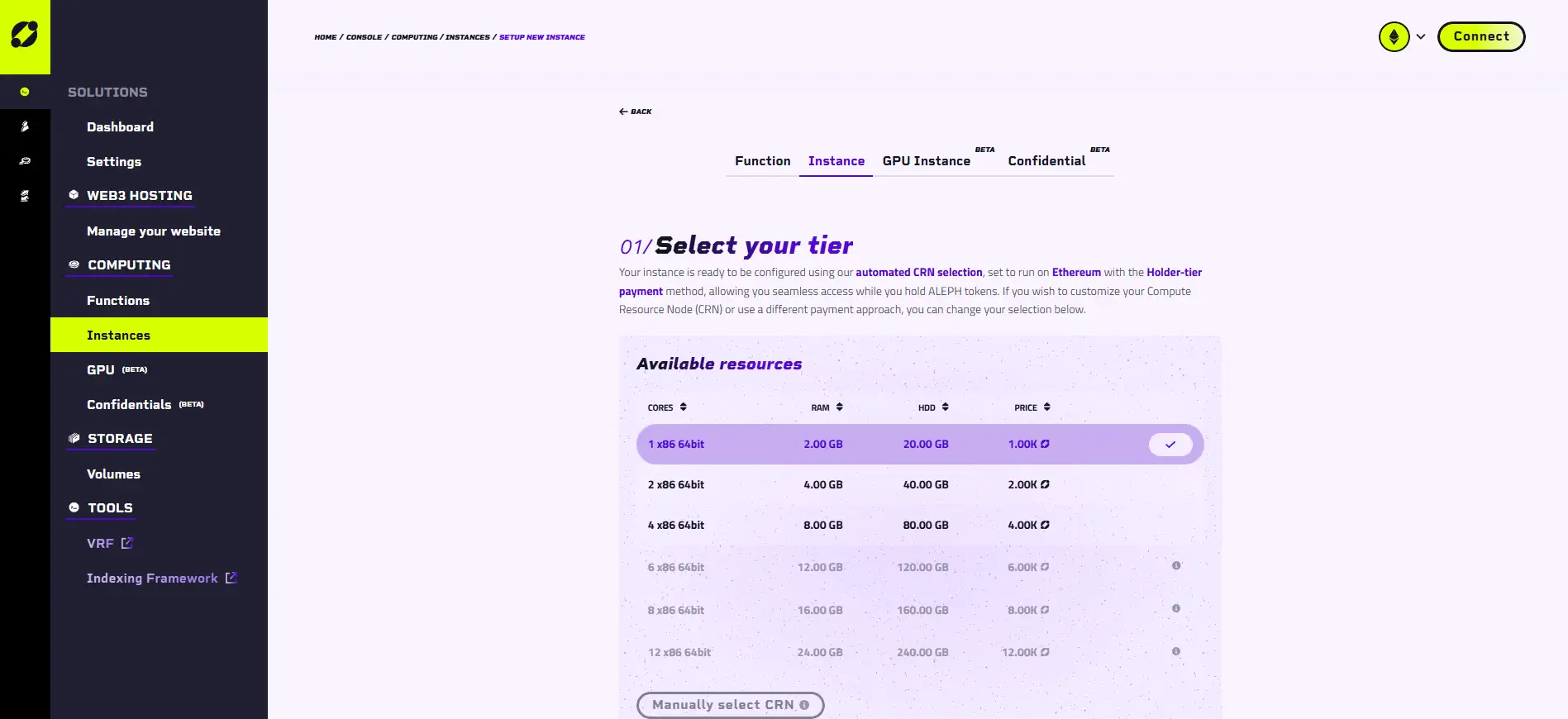About Aleph cloud
Aleph Cloud is a decentralized, high-performance cloud computing platform designed to empower developers, startups, and enterprises to run virtual machines, AI agents, and GPU-intensive workloads with total data ownership. It combines confidential computing, serverless VMs, and blockchain-based orchestration to deliver secure, private, and sovereign infrastructure — all without relying on centralized cloud providers. Built with compatibility across Ethereum, Solana, Avalanche, and other major chains, Aleph Cloud is ideal for Web3-native applications and high-compliance use cases.
With Aleph Cloud, developers can deploy resources instantly using CLI tools, SDKs, or declarative APIs, while enterprises benefit from full compliance with regulations like GDPR and data localization laws. It offers block storage (up to 20 TB), confidential virtual machines, and on-demand GPU compute at highly competitive rates. The platform is already trusted by industry leaders such as Ubisoft, Libertai, and HyperSwap to run critical infrastructure and censorship-resistant workloads.
Aleph Cloud is at the forefront of the Web3 cloud revolution, offering a full-stack, decentralized infrastructure designed to replace traditional cloud models with a sovereign, stateless, and censorship-resistant alternative. It enables users to deploy secure workloads — including AI training pipelines, financial services, healthcare compute, and gaming logic — without compromising on control, scalability, or performance. Unlike centralized providers, Aleph Cloud ensures complete infrastructure ownership and zero vendor lock-in.
The platform provides three core services: confidential compute (TEE-enabled private VMs), block storage with SSD performance, and GPU cloud services for scalable AI and ML applications. VPS options start at just $2.21/month, while GPU resources are accessible from $0.055/hour — making it a cost-effective alternative to AWS, Azure, or GCP. These services are wrapped into a unified, developer-first interface that supports Docker, Kubernetes, Terraform, and GitHub CI/CD pipelines. Users can also trigger VM operations using APIs and Webhooks for full automation.
The decentralized nature of Aleph Cloud means there is no single point of failure. Its confidential VMs are ideal for industries with high security requirements, such as finance, AI, and healthcare. For instance, Ubisoft utilizes Aleph Cloud to power dynamic NFTs and on-chain gaming infrastructure, while Libertai uses the platform for LLM deployment in a censorship-resistant environment. Request Network leverages Aleph’s storage services to store and back up financial data across both private and public IPFS networks.
The platform's commitment to compliance and sovereignty is a standout advantage. Enterprises can run workloads outside centralized jurisdictions, enforce data localization rules, and audit infrastructure activity through detailed logs and telemetry. Aleph Cloud also supports hybrid and side-by-side deployments with major providers, offering organizations the ability to cut cloud costs dramatically while preserving interoperability.
Unlike competitors like Akash Network, iExec, and Edgevana, Aleph Cloud emphasizes confidential VMs and developer UX. With modular architecture, full Web3 integration, and a powerful pricing model, it is rapidly becoming the infrastructure backbone of choice for decentralized apps and AI-native companies.
Aleph Cloud provides numerous benefits and features that make it a standout project in the decentralized cloud computing landscape:
- Confidential Virtual Machines: Run AI models, financial apps, and healthcare workloads with complete privacy, using Trusted Execution Environments.
- GPU Cloud on Demand: Access scalable GPU compute at $0.055/hour — perfect for ML inference and training.
- Cross-Chain Compatibility: Native integrations with Ethereum, Solana, Base, Avalanche, Tezos, and others.
- Cost Efficiency: Pay-as-you-go pricing lowers barriers to entry and reduces infrastructure spend across teams.
- Enterprise Compliance: Built for GDPR, data sovereignty, and zero-trust enterprise environments.
- Hybrid Cloud Deployments: Integrates smoothly with AWS, GCP, or Azure while maintaining decentralized reliability.
Aleph Cloud offers a developer-friendly process for launching decentralized infrastructure in minutes:
- Step 1 – Visit the Platform: Go to aleph.cloud and click "Launch Cloud App."
- Step 2 – Choose Your Resources: Select from VPS, GPU, or Confidential VMs. Customize specs like CPU, RAM, SSD, and block volume sizes.
- Step 3 – Deploy Instantly: Use your preferred method — Web UI, CLI, SDKs, or Terraform/GitHub Actions — to launch your cloud workload.
- Step 4 – Monitor and Scale: Use Aleph’s real-time telemetry tools, full audit logs, and automated scaling to manage deployments.
- Step 5 – Join the Community: Claim free developer credits, join the Discord, and explore documentation to expand your build scope.
Aleph cloud Reviews by Real Users
Aleph cloud FAQ
Aleph Cloud secures confidential workloads through its Trusted Execution Environment (TEE)-based virtual machines. These confidential VMs shield data and code execution even from node operators or infrastructure participants. With this setup, sensitive operations — such as financial calculations, AI model inference, or healthcare data processing — are fully protected by encrypted memory. Organizations gain full data sovereignty while meeting compliance standards like GDPR and HIPAA. Explore more at aleph.cloud.
Yes. Aleph Cloud supports hybrid and side-by-side deployments with major cloud platforms like AWS, GCP, Azure, and others. Its modular architecture integrates with Docker, Kubernetes, Terraform, and GitHub Actions, allowing teams to gradually migrate or scale workloads across both centralized and decentralized environments. This helps reduce cloud costs while maintaining flexibility. Learn more at aleph.cloud.
Aleph Cloud is ideal for high-compliance sectors like healthcare, finance, AI/ML, gaming, and cross-border data operations. Ubisoft uses Aleph for on-chain game logic and NFT management. Libertai runs LLMs on Aleph’s confidential compute. DeFi platforms like Request Network rely on it for decentralized storage. The cloud’s decentralized nature, auditability, and encryption meet the demands of any industry requiring data privacy and resilience.
Aleph Cloud offers a rich suite of developer tools including CLI, SDKs, REST APIs, and native Docker/Kubernetes compatibility. One-command deployments let developers launch VMs or storage nodes in seconds. The platform also supports serverless triggers, custom domains, and CI/CD integrations. Free credits are available through the Builder Program, making it extremely accessible for solo developers and teams.
Absolutely. Aleph Cloud offers scalable GPU instances with up to 72 GB RAM and 48 GB vRAM, priced from just $0.055/hour. It supports use cases like AI model training, inference, LLM deployment, and edge compute. Teams working on confidential or large-scale AI applications benefit from the privacy-first GPU environment, real-time telemetry, and infrastructure ownership. Get started at aleph.cloud.
You Might Also Like













